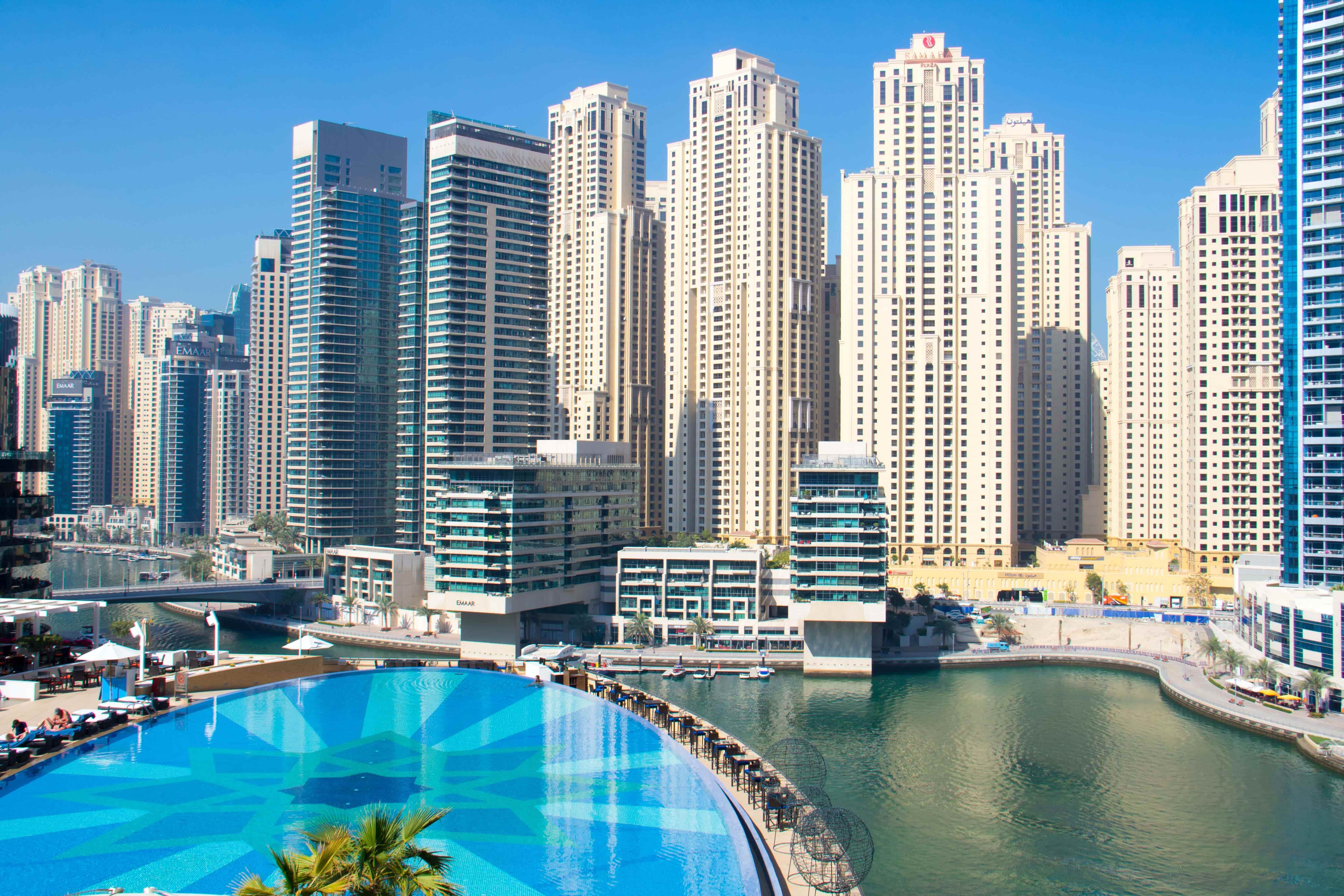DIFC SPVs
The Dubai International Financial Centre (DIFC) is a premier financial hub in the Middle East, Africa, and South Asia (MEASA) area and is one of the top 10 worldwide financial centers. With over 5,000 active registered firms and about 40,000 professionals operating within a thriving business ecosystem, the center offers a strong independent judicial system, a global financial exchange, creative architecture, and enabling support services.
With nearly 20 years of experience, DIFC has helped to facilitate investment and trade flows throughout MEASA, a region that has a combined population of almost three billion and a nominal GDP of roughly USD 8 trillion.
What are the new Prescribed Regulations all about?
The new DIFC SPVs Regulations addresses a significant gap in the offerings from the center, where there was no product comparable to the Special Purpose Vehicle regimes that existed in many comparable jurisdictions. The earlier PC regime required a Qualifying Applicant or a Qualifying Purpose, both of which tied in the product to existing DIFC clients.
Under the new regime, SPVs can be established by qualifying applicants (GCC Persons, DIFC Persons etc.), for a qualifying purpose (aviation, maritime, IP, crowdfunding and structured finance), to hold GCC-registrable assets, or, in case none of these apply, through a DIFC Corporate Service Provider so as to provide the required substance.
In essence, this brings a new level of flexibility to the offering – for instance, you can now form a PC if you are from India, to hold an asset in Africa, by appointing a CSP at the DIFC.

Since the SPVs cannot have employees, the DIFC has spun off the Qualifying Applicant bit into a different product called Active Enterprises. One can set up Holding Companies, Proprietary Investment Companies and Managing Offices as an Active Enterprise, with visa options, provided that one has a tie-in to the center already.
What are DIFC SPVs?
SPVs are passive holding companies established to ring-fence and isolate assets and liabilities from financial and legal risk. Typical uses include holding a variety of assets in a PC – real estate, private and public shares and investments, aviation and maritime structures and structured financing.

Why should you set up a SPVs in the DIFC?
Cost-effective
Setting up a SPVs is relatively inexpensive. DIFC charges US$ 100 as an application fee (one-time) and an annual commercial license fee of US$ 1,000. Other charges may include Corporate Service Provider (CSP) fees for registered address and other related services.
Flexible Address Options
A SPVs can have its own DIFC office space, a co-working desk, share office space with its DIFC affiliate, or use an appointed DIFC corporate service provider such as 10 Leaves to provide a registered address.
Common Law jurisdiction
The DIFC is a financial free zone with it’s own civil and commercial laws with access to DIFC Courts where proceedings are carried out in the English language under the familiarity of Common Law.

Quick Registration
In-Principal Approvals may be granted within three business days from the application submission. Setting up the legal structure of a SPVs with the DIFC Registrar of Companies may take 3-5 working days.
Globally competitive and attracted tax regime
A SPVs may be subject to zero tax, based on certain qualifications. The maximum tax liability of a SPVs will be 9%.
Transfer of Domicile
The DIFC SPVs Regime allows for domicile of incorporated companies to and from the DIFC.
Other advantages
No attestations are required for corporate documents, zero currency restrictions, 100% foreign ownership and zero restrictions on capital repatriation.
What are the possible use cases for a DIFC SPV?
DIFC SPVs can be used in a variety of structures. Here are a few use-cases, where The SPV is used as a holding structure for intellectual property, as part of a foundation structure to hold real estate, for asset protection through ring-fencing and for issuance of Employee Stock Option Plans.


Can I hold property in the name of a DIFC SPV?
Yes, you can.
Within the United Arab Emirates
A DIFC SPV is allowed to hold property in the Emirate of Dubai (both Muslims and non-Muslims) in designated areas for foreign ownership. The DIFC has an existing MOU with the Dubai Land Department to this effect.
An application can be made for the transfer fee to be reduced from 4% to 0.125%, in instances where it can be demonstrated that the beneficial owner of a Dubai property being legally transferred to the SPV is the same.
Designated areas include:
1. Business Bay.
2. Dubai Sports City.
3. Dubai Marina.
4. Dubai Motor City.
5. Emirates Hills.
6. Dubai South.
7. International City.
8. Jumeirah Lakes Towers.
9. Jumeirah Islands.
10. The Palm Jumeirah.
11. Arabian Ranches.
12. The World Islands.
13. Mirdif (specified plots).
14. Downtown Dubai.
15. Dubai Investment Park.
16. Old Town.
17. Discovery Gardens.
18. Burj Khalifa.
19. Meydan.
20. Jumeirah Beach Residence.
21. Falcon City.
22. Jumeirah Village.
Outside the United Arab Emirates
The SPV can be used to hold properties in the wider GCC region and worldwide as well, provided that a substantial part of the assets under a SPV are GCC-based. For instance, A SPV would not be able to hold a building in London and a single apartment in Dubai, since a substantial part of the asset portfolio is non-GCC.

Can a DIFC SPV be a shareholder in other companies?
Yes, SPVs can be the direct shareholders of companies established in the UAE, GCC and anywhere else in the world.
Who can establish a SPV in the DIFC?
Under the SPV regulations, here are the qualifications in order to establish a SPV.
By way of Control
1. The SPV will be controlled by one or more GCC Persons.
As per the DIFC, a GCC Person is:
a) a natural person who is a citizen of a GCC Member State;
b) a body corporate or body unincorporate, including a company, partnership, or unincorporated association, that is Controlled by one (1) or more natural persons who is a citizen of a GCC Member State;
c) a body corporate that has any class of its securities listed on a securities exchange in the GCC; or
d) a Government Entity – which means any of the following:
(a) the Federal Government, the government of Dubai or the government of any Emirate;
(b) a person in which a government entity listed in (a) above owns (directly or indirectly) an interest of at least twenty five percent (25%) (or such other percentage approved by the Board of Directors of DIFCA);
(c) or is otherwise Controlled by a government entity listed in (a) above.

2. The SPV will be controlled by one or more Registered Persons
A Registered Person is a DIFC Registered Entity other than a SPV and a Non-Profit Incorporated Organisation.
3. The SPV will be controlled by one or more Authorised Firms
An Authorised Firm is one that holds Financial Services Permissions from the DFSA or a Recognised Financial Services Regulator ( in another jurisdiction/country) to carry out one or more financial services. This does not include a Representative Office.
By way of Utilisation
The SPV is to be established or continued in the DIFC for the purpose of holding legal title to, or controlling, one or more GCC Registrable Assets.
An asset or property interest that must be registered with a GCC Authority to establish legal ownership, secure rights, or claims against it, and to provide public notice (e.g. a share certificate, commercial licence, title deed, etc). of such interests, including but not limited to Land and Real Property, shares in public and private companies, partnership interests and other assets.

By way of Qualifying Purpose
A SPV can be formed in the DIFC for a Qualifying Purpose, which is one of the following:
a) An aviation structure - a structure of one or more persons having the sole purpose of facilitating the owning, financing, securing, leasing, or operating an interest in one or more aircraft.
b) a Maritime structure - a structure of one or more persons having the sole purpose of facilitating the owning, financing, securing, chartering, managing, or operating of an interest in one or more Maritime Vessels or Maritime Units.
c) Intellectual Property structure - a structure of one or more persons established for the sole purpose of holding intellectual property for commercial purposes.
d) A Crowdfunding structure - a structure of one or more persons established for the purpose of holding the assets invested into through a Crowdfunding Platform.
e) Structured financing - a structure of one or more persons having the sole purpose of holding assets to leverage and/or manage risk in one or more financial transactions, inclusive of the following:
(a) complex lending or security arrangements;
(b) derivative transactions;
(c) hybrid securities;
(d) issuing of Securities to facilitate bond or sukuk issuances;
(e) securitisations; or
(f) collateralised debt instruments, whether done in an Islamic or a conventional manner.
Through an arrangement with a DIFC-registered Corporate Service Provider
A SPV can be established by any person, even if none of the above conditions are met, provided that an employee of a Corporate Service Provider is appointed as a director of the SPV, and that CSP has an arrangement with the DIFC Registrar of Companies to carry out certain AML/Compliance functions on behalf of the SPV.
What does the DIFC consider as a Recognised Financial Services Regulator?
The DIFC recognizes certain jurisdictions as equivalent to itself in terms of robustness of regulation. These include the UAE, Zone 1 countries and jurisdictions recognized by the DFSA under it’s Collective Investment Law. The Zone 1 countries are - Australia, Austria, Belgium, Canada, Denmark, Finland, France, Germany, Greece, Hong Kong, Iceland, Ireland, Italy, Japan, Luxembourg, Netherlands, Norway, Portugal, Singapore, Spain, Sweden, Switzerland, United Kingdom and United States of America.
What is the process to set up a SPV in the DIFC?

Setting up a SPV in the DIFC involves the following steps:
- Collation of documents – This includes detailed KYC on the shareholders and Directors of the SPV.
- Finalisation of Registered Address – this can be a physical address at the DIFC, or can be provided by 10 Leaves as the CSP and Registered Agent.

- Initial submission to the DIFC Registrar of Companies.
- DIFC Review/clarifications and responses.
- Preparation of the legal documents – Resolutions and Articles.
- Final Approvals – the PC is now formed.
What is the legal system that is followed in the DIFC?
The DIFC Courts are an independent English language common law judiciary, based in the DIFC with jurisdiction governing civil and commercial disputes nationally, regionally and worldwide. The Courts began operations in 2006.
Originally, the jurisdiction of the DIFC Courts was limited to the geographical area of the DIFC. The signing of Dubai Law No 16 in 2011 allowed the DIFC Courts to hear any local or international cases and to resolve commercial disputes with the consent of all parties.
Does a DIFC SPV require a Registered Agent?
A SPV in the DIFC is required to have a registered office in the centre, where all relevant communications and notices can be delivered. This can be accomplished by:
1. Leasing office space in the DIFC;
2. sharing office space with an affiliate established in the DIFC; or
3. appointing a Registered Agent.
What is a Registered Agent for a DIFC SPV?
A Registered Agent is a “Qualified Person” (such as 10 Leaves) licensed by the DIFC and registered with the DFSA as a Company Service Provider. The registered agent provides the following services:
1. Assistance in setup of the SPV.
2. Preparation and filing of the Articles of the SPV.
3. Providing the Registered Address for the SPV.
4. Administration of the SPV and secretarial services.
5. Accounting and bookkeeping services.
6. Compliance and AML services.
Are there any naming requirements?
The name of a DIFC SPV must end with the word ‘Limited’ or ‘Ltd’. It should also comply with the naming rules that are in force at the DIFC.
Does the SPV have to maintain annual accounts?
Yes. Accounts would have to be prepared and maintained as per DIFC Companies Law.
A SPV that has a Qualifying Purpose of a Structured Financing shall be exempt from any requirement to file its accounts with the Registrar or have them audited.
In case of SPVs used by Crowdfunding Platforms, the DIFC has removed the audited accounts requirement where the SPV has an annual turnover of less than US$ 5 million but has more than twenty shareholders.
Does the DIFC have a time limit for SPVs?

No. SPVs can continue until perpetuity. However, where the SPV has been established to hold or control GCC Registrable Assets, or for a Qualifying Purpose, it has six months (from the license issuance date) to confirm to the Registrar that it holds or controls one or more GCC Registrable Assets or has begun to carry out it’s Qualifying Purpose.
Can the ownership of existing operational business be transferred into the DIFC SPV, without any disruptions?
Yes, the transfer of the shareholding of existing companies within the UAE and the GCC is a simple process. In essence, it is a share transfer in the operational entity.
Does the DIFC SPV require any kind of local representation at the DIFC?
The DIFC SPV can use the address of a registered agent – it does not have to lease an office separately, although it has an option to do so.
Does the DIFC have special courts for DIFC SPVs?
The DIFC Courts have jurisdiction over DIFC SPVs, and the Regulations specify a pro-active role for DIFC Courts.
Can the DIFC SPV be Sharia'-compliant?
The DIFC SPV can apply Sharia' principles to it's governance and consolidation of underlying assets.
Do DIFC SPVs have to file ESR reports every year?
The UAE Economic Substance Regulations were introduced in April 2019 and implemented as part of the UAE’s commitment as a member of the OECD Inclusive Framework, and in response to an assessment of the UAE’s tax framework by the European Union Code of Conduct Group on Business Taxation. DIFC SPVs may fall in the scope of these regulations.
Can a SPV apply for residence visas and work permits?
No, a DIFC SPV is not allowed to have employees.
Do I need to be physically present to apply for the SPV?
No, the DIFC client on-boarding system is fully digital and the process is done online. 10 Leaves is a DIFC-registered CSP and will assist you throughout this process.
How much does it cost to setup a SPV in the DIFC?
SPVs are pretty cost-effective, with DIFC fees as low as US$ 100 as a one-time fee for applications and US$ 1,000 as license fees on an annual basis. Additional fees would include annual filing of the Confirmation Statement (US$ 300) and CSP professional fees.
We can structure your SPV, including drafting of all required documents through 10 Leaves Legability. Do contact us for a customised quote!
How Can 10 Leaves help you?
10 Leaves is a Corporate Service Provider at the DIFC.
We offer the following services related to DIFC SPVs:
1. Structuring and customization of the Articles of Association – in partnership with Legability, our legal platform, we are able to customize the Foundation to suit your requirements. We are able to factor in Common Law, UAE Law, European laws, Kuwaiti and Saudi Law, to deliver a highly personalized document for your requirements.
2. Setup of the SPV.
3. Registered Address.
4. Nominee Directorship and Authorised Signatory Services.
5. Additional consultations on DIFC and International Foundations in Luxembourg.
Are you looking to set up a SPV in the DIFC? Contact us today!















 CONTACT
CONTACT